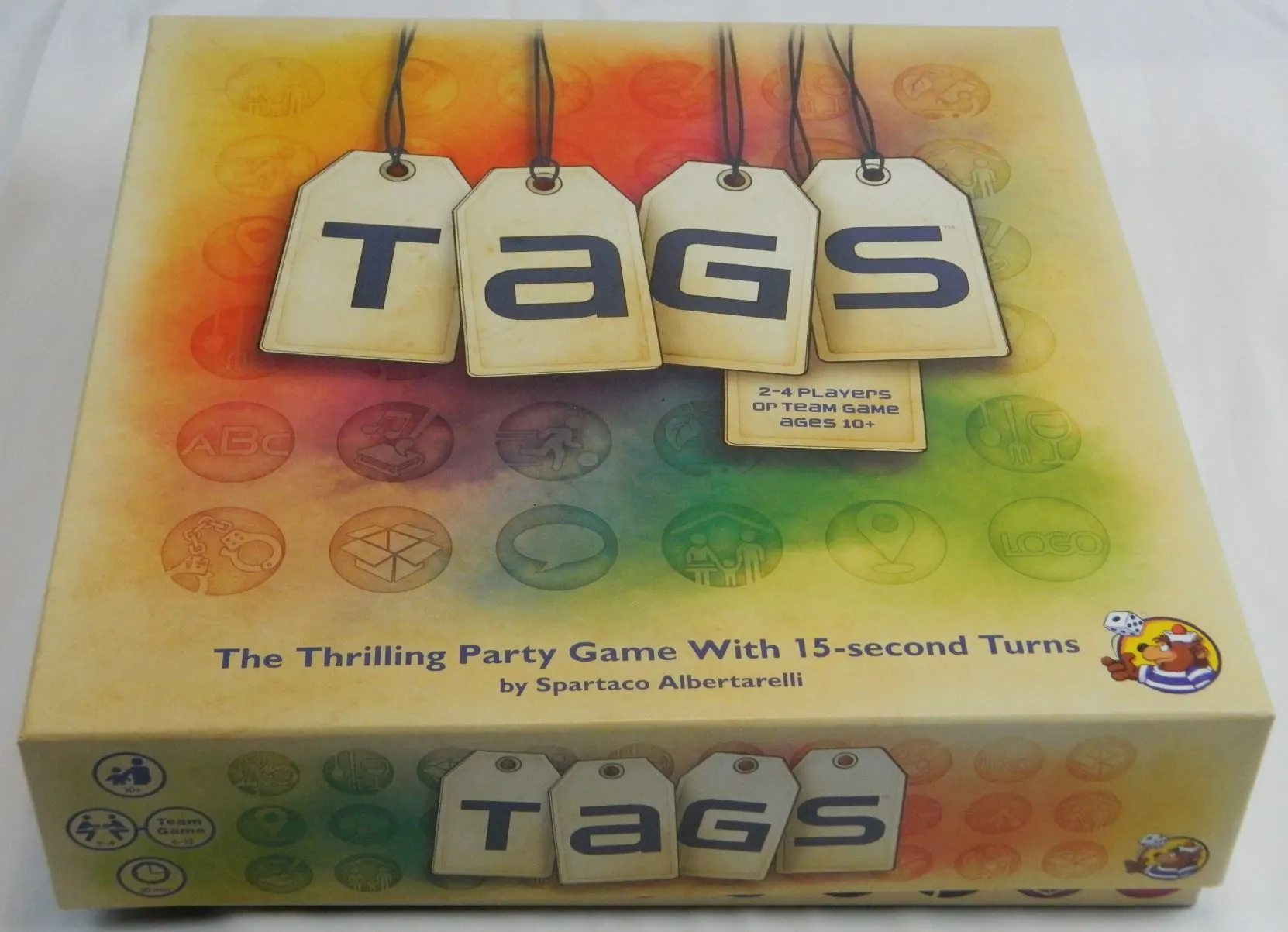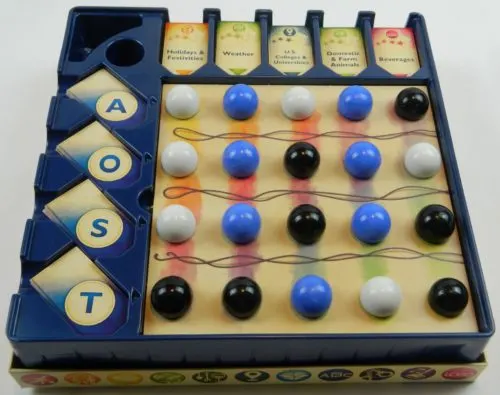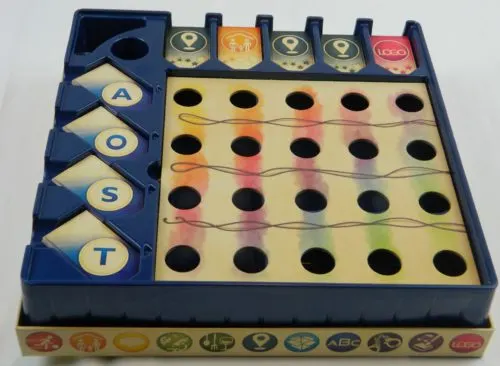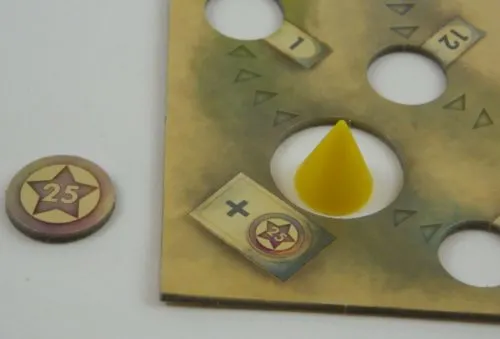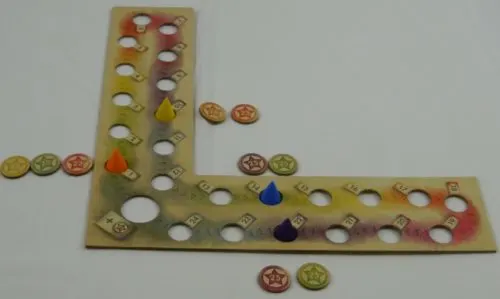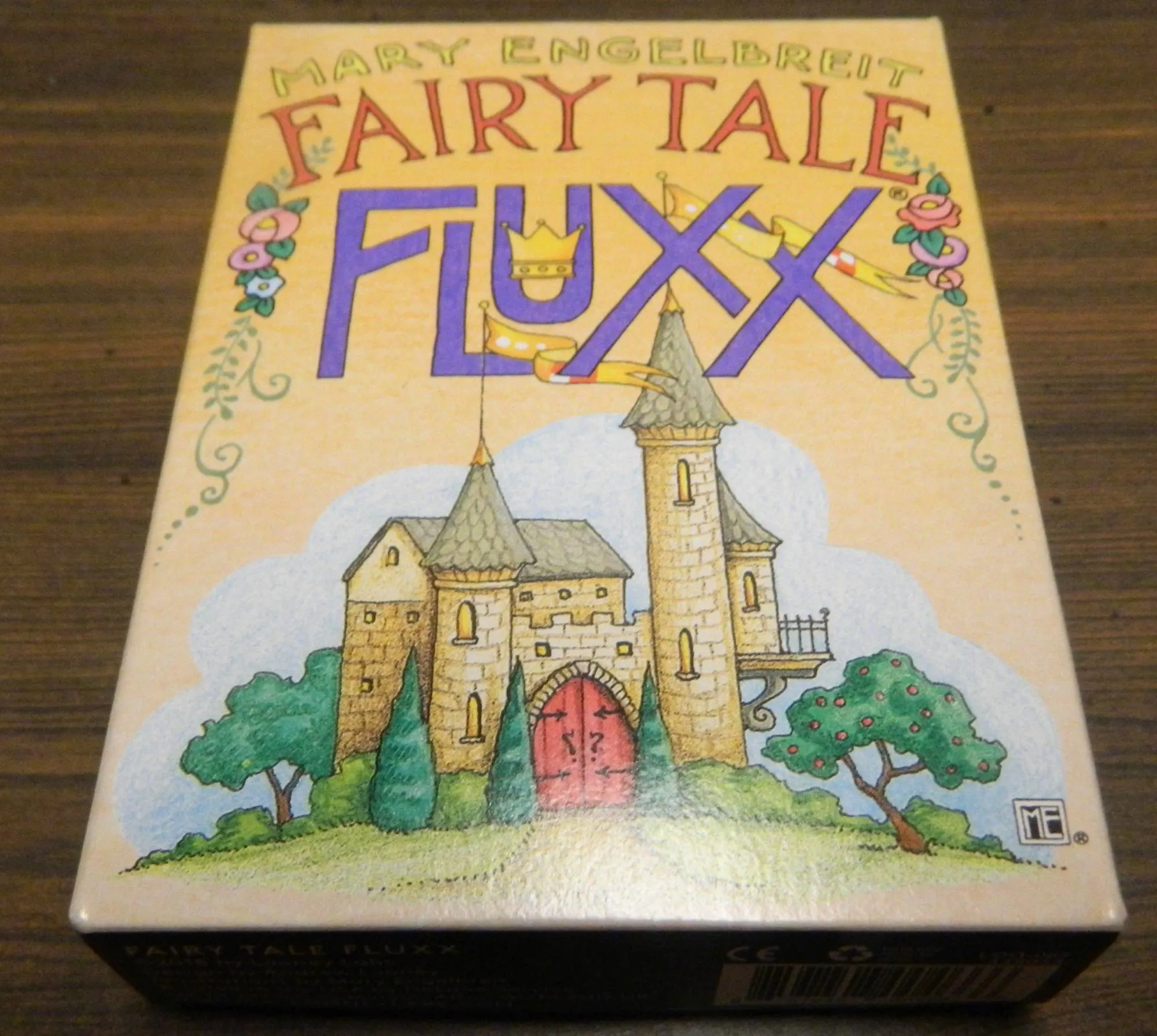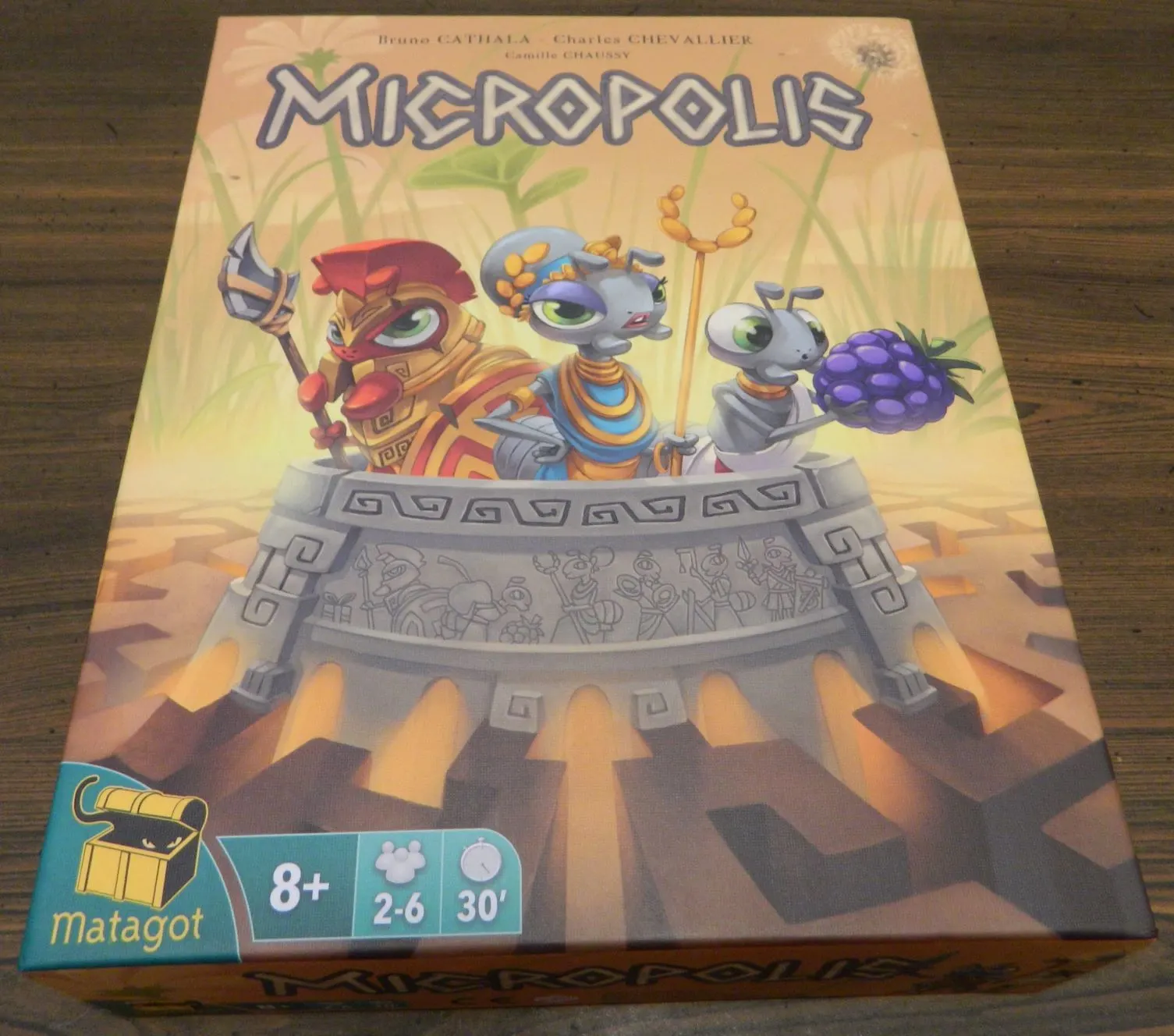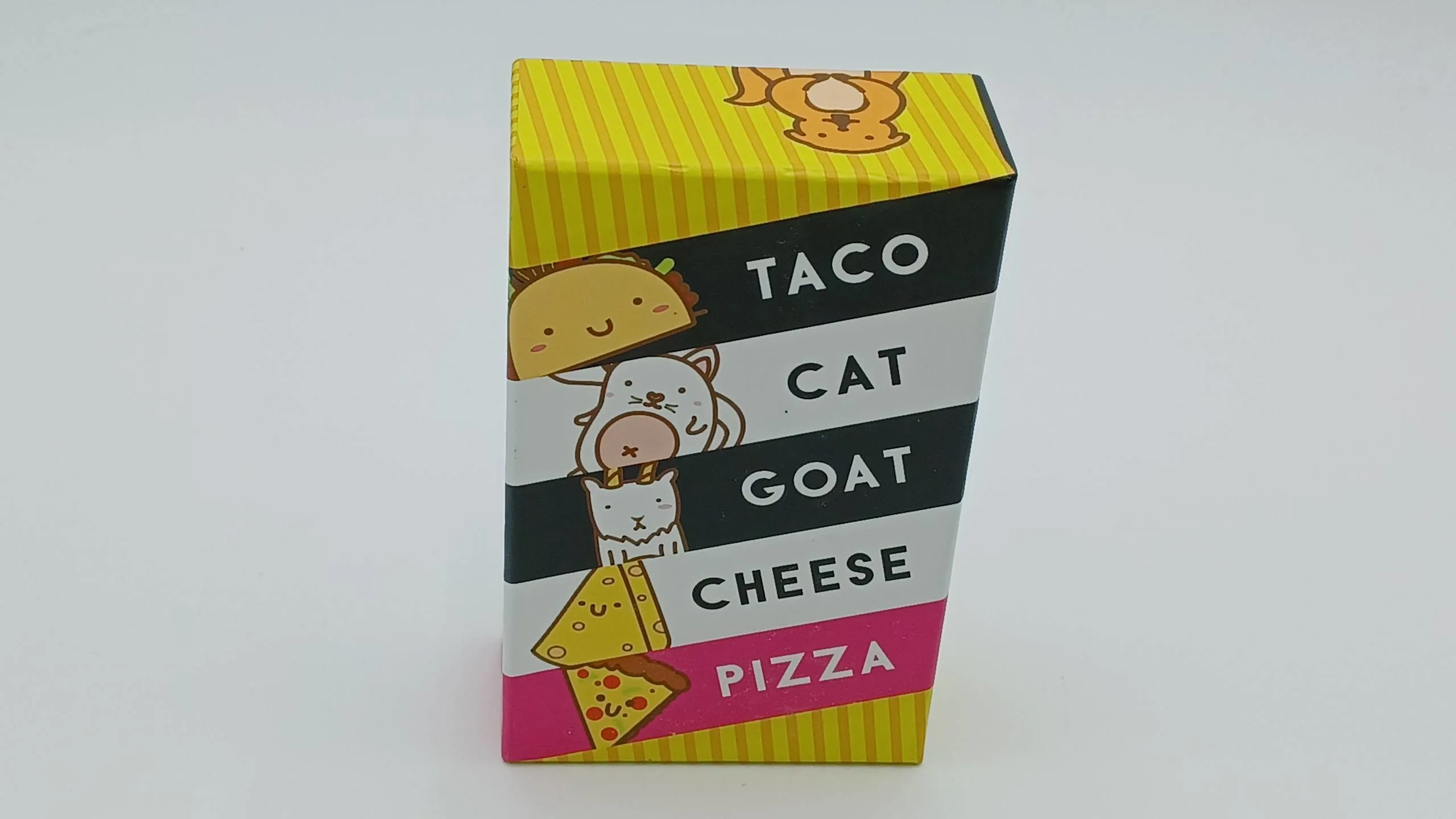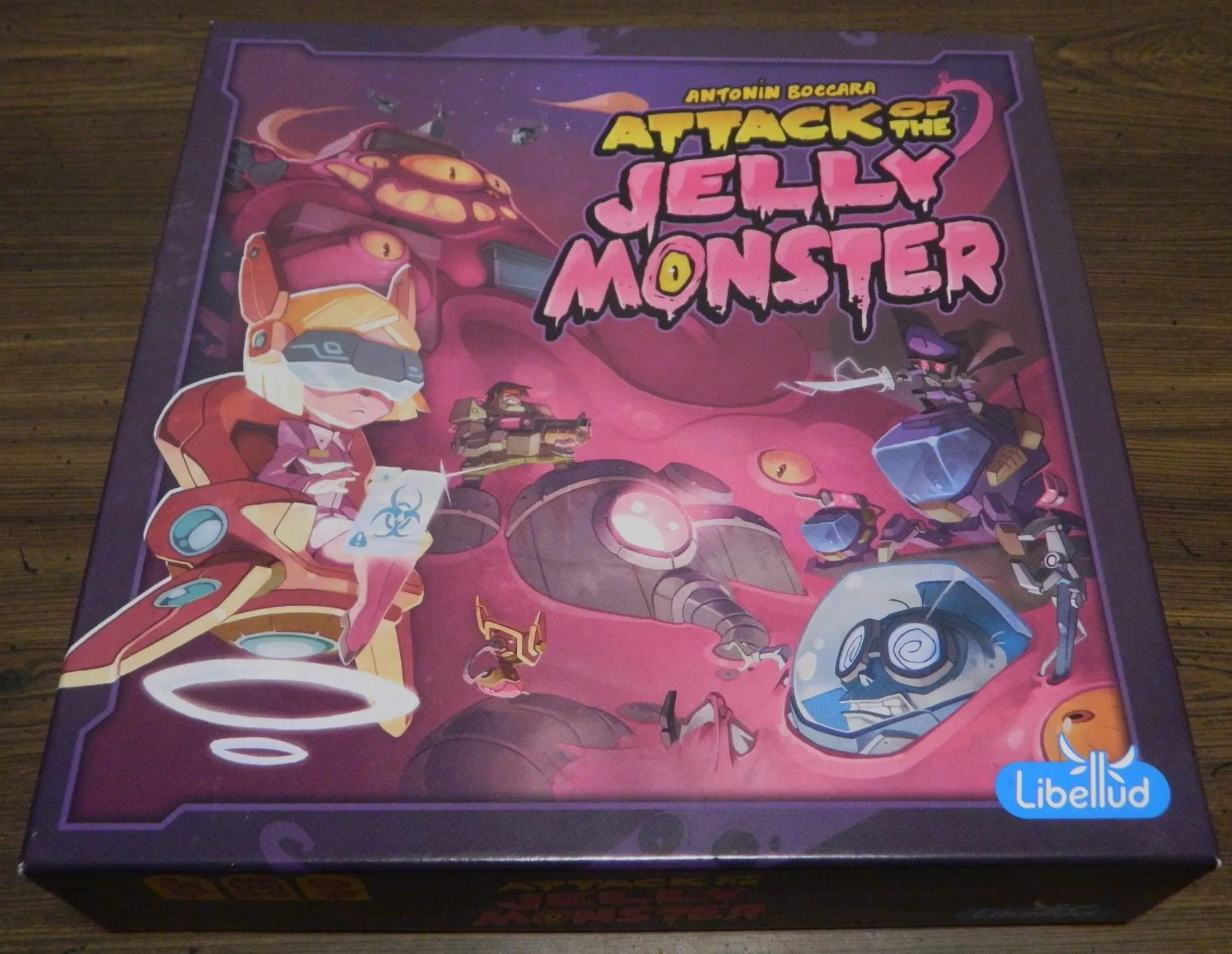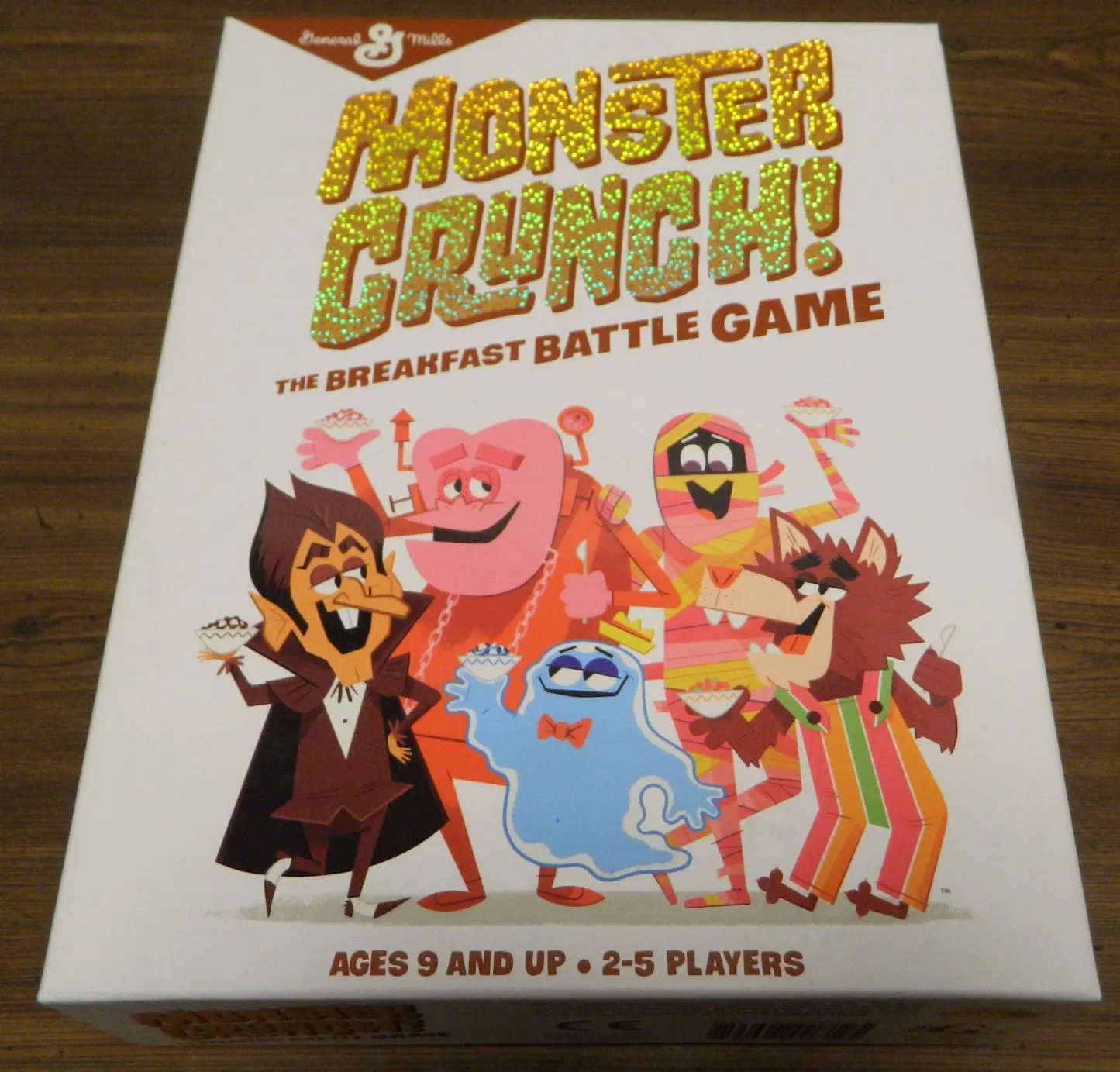I have always been a pretty big fan of the word game genre. I might not be a huge fan of Scrabble and other spelling games, but I usually love word games that require players to come up with words that fit certain requirements. What I like about this genre is that the games are usually really easy to play and yet require quite a bit of skill/strategy. Today I am looking at the 2018 word game TAGS which was heavily inspired by the 1994 game “Category Game”. I honestly had never heard of Category Game before which could be because it might have never been released in the United States. When I heard the premise behind TAGS though, I was immediately interested. A word game where you have to come up with words that fit a certain category, within a short period of time, sounded like something right up my alley. TAGS may share quite a bit in common with some other party games, but it succeeds at being a really fun fast paced party word game.
How to Play TAGS
Setup
- The players will choose whether they want to play the normal game or an easier game. If the players want an easier game they should remove the difficult letter tags which are the tags that say “includes” and “ends with”. For the topic tags you can remove all tags that feature four or five stars.
- Shuffle the topic tags and place them face down in the pockets along the top of the tray.
- Shuffle the letter tags and place them face down in the pockets along the left side of the tray.
- Place the 25 point tokens and the sand timer in the pockets in the corner.
- Randomly place the marbles on the holes on the game board.
- Each player will take a plastic bowl and a player marker.
- All of the player markers will be placed on the zero space of the score track.
- The oldest player will take the first player marker and will get to start the first round.
- Flip over the top cards from each of the letter and topic pockets.
Playing the Game
The game is played over a number of rounds equal to the number of players.
Each player’s turn begins with the sand timer being flipped over. The current player will try to come up with as many answers as they can before the timer runs out.
The game board consists of a 4 x 5 grid. The objective of the game is to come up with answers for the various topics which start with the letters in the grid. The exceptions to this are the “includes” and “ends with” letter cards which follow those rules instead of having to be the first letter. When a player comes up with a valid answer, they will take the marble corresponding to the position in the grid that matches the letter and category. For an answer to count it must follow a few rules.
- The answer must be specific to the topic. If the answer could apply to a bunch of different topics, it does not count. For example for “Things That Are Red”, truck would not count as trucks can be any color. A fire truck would count though as most if not all fire trucks are red.
- If an answer contains multiple words, only the first word has to match the letter tag.
- If an answer starts with an article like “the” or “a/an”, the article cannot be used to match a letter tag.
- The same answer can be used for multiple topics if it applies to them.
- Foreign words cannot be used.
- If there is any dispute over what should count, players will vote while the sand timer still runs. If half or more of the players don’t think an answer should count, it won’t count.
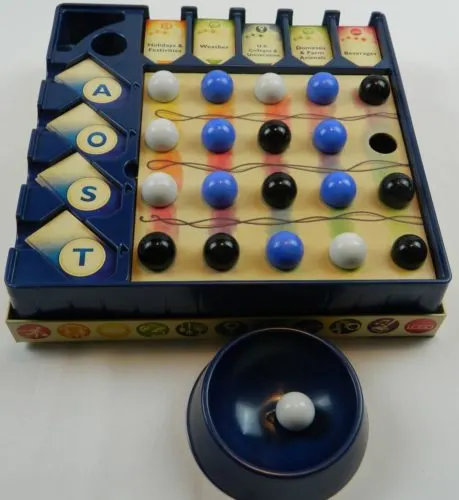
This player came up with “orange juice” for a beverage that starts with “o”. They will then take the corresponding marble.
When a player takes the last marble from one of the topics/columns, they will take the corresponding topic tag which will score them points at the end of the round.
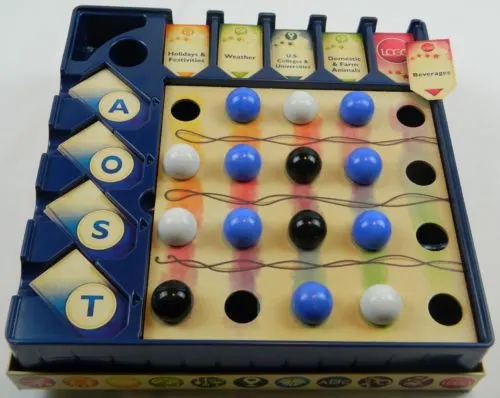
The current player has taken the last marble from the “beverages” category. The current player will get to take the tag and will score points for it.
A player’s turn will end immediately when the timer runs out. One of the other players should monitor the timer and shout out “stop” when it runs out. If a player gives the answer but doesn’t take the marble/topic tag before their turn is over, they will still get to take it. If the answer is given after they run out of time, they won’t get to take the marble. The next player can also say the same answer on their turn to claim the marble.
End of Round
A round of TAGS can end in one of two ways:
- all of the marbles and topic tags have been removed from the game board
- all of the players take a turn and none are able to come up with an answer that allows them to take a marble
The players will then score points based on the marbles and topic tags they took during the round.
Each marble is worth the corresponding number of points:
- White: 1 point
- Blue: 2 points
- Black: 3 points
Each topic tag is worth one point for each star displayed on it.
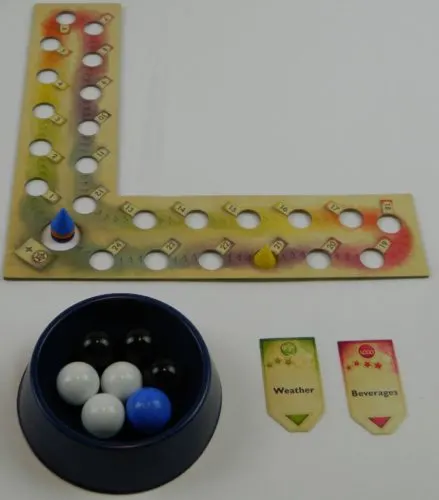
At the end of the round this player acquired seven marbles and two tags. They acquired three black marbles (3 points each), one blue marble (2 points), and three white marbles (1 point each) for a total of fourteen points. The “weather” tag is worth three points and the “beverages” tag is worth four points. The yellow player earned a total of 21 points.
Each player will move their marker forward spaces on the score track equal to the number of points they scored. If a player passes the start space they will take a 25 points token and will continue moving their piece around the board.
The next round is then played with the next player clockwise/left taking the first player marker. All of the letter tags and topic tags used in the previous round are removed from the game board. All of the marbles are randomly placed back onto the game board.
End of Game
The game ends after rounds equal to the number of players have been played (each player got to be the start player once).
The player that scored the most points in the game will win. If there is a tie, the tied players will share the victory.
Variant Rules
Team Game – If you are playing with more than four players, the players will form teams. In each round one team member will be given the role of picking up marbles and tags. All of the players from the current team can give answers.
Adjusting the Difficulty: The game has a number of different ways of making it harder or easier.
- Stars: The more stars that topic cards have, the harder it will be to come up with valid answers. To make the game easier you can remove the four and five star tags. For a harder game you can remove the two and three star tags.
- Initial Letters Only: If you remove the “includes” and “ends with” letter tags, the game will be easier.
- Topics: All of the topic tags fit into a number of different topics. If your group doesn’t like one of the topics, they can remove all of the topic tags of that type.
- Points: To make the game easier for some players, the more experienced players only score one point for each marble and two points for each topic tag.
- Time: Beginners and children could have the timer turned over twice in order to give them more time.
My Thoughts on TAGS
When most people think of party games, one of the first that probably comes to mind is the 1988 game Scattergories. Scattergories was a game that was based on an old public domain game called Categories/Guggenheim. The basic premise of the game is that the players choose a set of categories and roll a letter die with the goal of trying to come up with answers to the categories that match the letter that was rolled. The reason I bring this up is that while playing TAGS it reminded me a lot of party games like Scattergories.
The premise behind TAGS is very similar. In each round you reveal four letters and five categories. The timer is then turned over. Before the fifteen second timer runs out you try to think of words for the various categories that start with the letters on the tags. Whenever you come up with a valid answer you will take the marble from the corresponding spot on the grid which will score you points. If by taking that marble you clear out one of the categories, you will also get to take that tag which will score you points. When your time runs out, the gameboard is passed to the next player who then tries to take as many marbles as they can. This continues until either all of the marbles are taken, or the players are unable to come up with answers for the remaining combinations.
For those who are familiar with games such as Scattergories, most of TAGS will feel pretty familiar. The main gameplay doesn’t drastically differ from these other games. Therefore your opinion of these other games is likely going to translate to TAGS as well. If you have never been much of a fan of this genre of games, I don’t see TAGS changing your mind. Those who enjoy these types of games though are likely going to really enjoy TAGS as well. As a fan of these types of games, I really enjoyed playing TAGS.
I think the TAGS’ greatest strength comes from the game’s overall speed. The front of the box makes a big point out of it using a 15 second timer. While playing the game you will quickly realize that 15 seconds isn’t that long. When new tags are first put out you may be able to get three or four in one turn. After that though you will be lucky to get one or two before you run out of time. While I think the timer should have maybe been a little longer, it really makes the game move at a brisk pace. You don’t have time to waste on your turn, so you need to think about options during other players’ turns. Some people will probably be turned off by the game’s frantic pace, but I think it really helps. There is very little downtime in the game as even when it is another player’s turn, you will be busy thinking of answers yourself. I have always enjoyed speed games and I think TAGS does a good job capitalizing on the best elements of the genre. With how quick turns are, you could easily finish the game within 20-30 minutes.
In addition to TAGS’ quick speed, the game is also quite easy to play. Players who have already played similar games should be able to pick up TAGS really quickly. Even those who have never played a game like this before should still be able to pick up the game pretty quickly. This is mostly because most of the gameplay is so straightforward. Basically you just try to come up with words that start with a certain letter that fit a category. Otherwise there are the different ways of scoring points. The game has a recommended age of 10+. As long as kids have a strong vocabulary for their age, I think kids even a little younger could play the game. The game does have one category that contains more objectionable tags, but you could easily remove these from the game.
Ultimately I enjoyed playing TAGS as the gameplay is just really satisfying. I have always enjoyed these type of games where you need to try and come up with words that fit into a given category. Things are no different for TAGS. In fact I think it is actually better than a lot of the games that I have played from this genre. I wouldn’t say that the game is highly strategic, but I do think it requires quite a bit of skill. To do well in the game you need a strong vocabulary in order to have more options to answer with. The other key requirement is to think quickly. Being quick on your feet is key to the game as the 15 seconds runs out quickly. The players who have the best combination of these two elements have the best chance of winning the game. Some players are naturally going to be better at TAGS than others.
While I really enjoyed playing TAGS, it does have a few issues that prevent it from being quite as good as it could have been.
The first issue is something that plagues pretty much every game from this genre. By the nature of the gameplay there are going to be arguments over what should and shouldn’t count. The rules officially state that an answer should only count if it is specific to the category. This helps eliminate some of the answers that technically fit, but everyone knows shouldn’t count. There are still a lot of answers that are on the fence though. This can lead to arguments especially among competitive players. Some people will want to be really strict about what should count, while others want to be more lenient. To try and prevent arguments later in the game, players need to come to an agreement over what type of answers should count, and which shouldn’t.
This leads me to the second issue that I had with the game. I give the game some credit for coming up with a unique system for scoring (technically it is borrowed from the Category Game). Using the marbles is an interesting idea that makes it obvious which letter/category combinations have been taken by the other players. The problem with the scoring is that it just feels kind of random. At the beginning of each round the marbles are randomly put out on the board. The value of these marbles can range from one to three points. The value is randomly assigned so an answer that was really easy to come up with could be worth more points than an answer that is considerably harder. On top of this the player that completes a category gets to take the tag which can be worth quite a few points. The last answer could literally be the only answer that the player provided as they benefit off the other players’ answers.
Because of these two issues, TAGS is the type of game that you can’t ever take too seriously. While it is always nice to win, winning shouldn’t be the only thing that you are focused on. Players will get the most enjoyment out of TAGS if they just want to have a good time. There are going to be players that are naturally better at TAGS, but there is a decent amount of luck that goes into determining a winner as well. This will frustrate some players as they will feel like they lost due to no fault of their own. For this reason you need to just be happy enjoying the game with the other players that you are playing with.
The final complaint that I had with TAGS is that for most rounds there will be at least one combination that is basically impossible to come up with an answer to. With the letters and categories being randomly assigned, there was no way to prevent combinations that don’t work with each other. The good news is that the round automatically ends if each player fails to get a new marble on their turn. This prevents players from wanting to keep trying to come up with a valid answer. It is kind of unsatisfying having most rounds end with at least one category not being completely finished though. You could somewhat fix this by removing some of the more difficult cards, but I don’t think there is a way to completely eliminate it.
As for TAGS components, I really enjoyed them for the most part. The game comes with the gameboard, cards and marbles. The marbles are quite large and are actually pretty heavy. The only complaint I had with them was that a couple of the marbles that came with my new copy of the game had some weird spots on them. The artwork on the gameboards and cards is quite nice. The artwork isn’t flashy, but its more laid back approach really works for the game. I also liked that the game comes with quite a few cards. You should be able to play a lot of games before you have to worry about getting sick of using the same cards over and over again.
Should You Buy TAGS?
I had quite a bit of fun playing TAGS. The game might not be the most original as it does share a lot of elements with many other word party games. Yet the game is still really enjoyable. Part of this comes from how quick the game is. The timer is only fifteen seconds so you need to think really quickly if you want to get as many answers as possible. TAGS is also really straightforward where everyone should be able to pick it up pretty easily. The game has a decent amount of skill as you need a strong vocabulary and to think quickly. Players are likely to have some arguments over what answers should and shouldn’t count though, and the scoring can be a little wonky. For these reasons TAGS is the type of game that you can’t take too seriously.
Those who have never been big fans of word party games, probably won’t care for TAGS. If the premise interests you though and you don’t already own another similar game, I think you will really enjoy TAGS and should consider picking it up.
Buy TAGS online: Amazon, eBay
. Any purchases made through these links (including other products) help keep Geeky Hobbies running. Thank you for your support.

